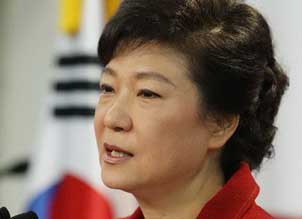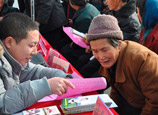
The Supreme People's Court of the People's Republic of China announced a ban on tourism at state expense and meetings in upscale hotels on Dec. 12, and imposed strict requirements on related seminars, forums, and celebrations.
The ban is in line with the central government's call on officials to improve their work style in eight aspects, and is also a response to a recent luxurious meeting in Wuhu, Anhui province.
"Luxurious meetings" have become an unspoken social rule. Certain government agencies consider holding meetings in scenic spots or luxurious hotels as part of employee benefits, and many companies and institutions use it as a useful public relations tool. As a result, government agencies and public institutions are spending more and more public money on holding meetings, which can easily lead to corruption. Visiting scenic spots and living in five-star hotels using public money in the name of holding meetings have not only diluted the themes of these meetings, but also fostered extravagance and reduced the public's trust in the government.
As early as 30 years ago, the State Council issued the Notice on Strictly Restricting Meetings in Famous Scenic Spots. The General Office of the Central Committee of the Communist Party of China and the General Office of the State Council jointly issued the Notice on Forbidding Party and Government Organs from Holding Meetings in Famous Scenic Spots in 1998. However, "conference tourism" remains rampant, and holding governmental conferences and official receptions have greatly increased the revenue of certain scenic spots, and improved local gross domestic product (GDP) figures.
Great courage and effective supervision are needed to curb "luxurious meetings." When government budget and spending on vehicle purchases, overseas trips, and official receptions are placed under public supervision, the number of "luxurious meetings" which are often held as a form of employee benefits or used as a public relations tool will naturally drop.
According to a report recently released by a research center of Peking University, only 23 of the 42 central government agencies passed a test of information disclosure, namely scoring more than 60 points in the test, and nearly half of all central government agencies failed a test of administrative transparency. This indicates a considerable gap between public expectations and the amount of disclosed information on government spending. Extravagance can be curbed as long as government budget and spending are effectively supervised.
Read the Chinese version: 从源头着手遏制“奢侈冲动”, source: People's Daily Online, author: Hao Hong














 Beijing-Zhengzhou high-speed railway to start service on Dec. 26
Beijing-Zhengzhou high-speed railway to start service on Dec. 26


![]()
